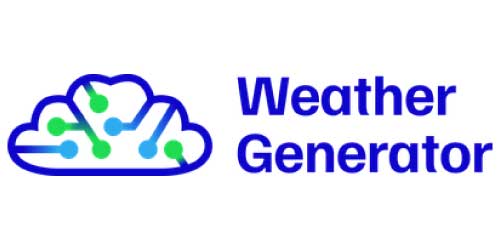As climate change intensifies, predicting weather patterns and climate impacts has become increasingly complex. Traditional models struggle with task-specific limitations and high computational demands, often failing to keep pace with rapidly changing data. These challenges make it difficult to provide accurate, timely insights across diverse applications, from renewable energy forecasting to disaster preparedness. Addressing these demands requires a resilient approach to Earth system modelling. The EU-funded WeatherGenerator project will build a state-of-the-art foundation model as a new digital twin for the European Commission’s Destination Earth initiative. Based on advanced representation learning, the project integrates extensive Earth system data and uses Europe’s supercomputers to offer fast, accurate predictions for diverse applications, setting a new standard in climate modelling innovation.
This project will build the WeatherGenerator – the world’s best generative Foundation Model of the Earth system – that will serve as a new Digital Twin for Destination Earth. The WeatherGenerator will be based on representation learning and create a general and versatile tool that models the dynamics of the Earth system based on a large variety of Earth system data. The WeatherGenerator will be task-independent and will improve results for a wide range of machine learning applications when compared to task specific machine learning tools. It will also be more resilient for climate applications when the underlying data distributions are changing, and it will lead to a significant reduction in computational costs and faster turnaround times.
To achieve this, we will: (1) Collect and use the most important datasets of Earth system science including data from Digital Twins of Destination Earth, selected observations, analysis and reanalysis datasets, and output of conventional Earth system models. (2) Build the WeatherGenerator as a novel representation learning-based machine learning tool that exploits the full potential of Europe’s largest supercomputers. (3) Engage with the wider community via services and apply the WeatherGenerator for 22 selected applications that can be integrated into the Destination Earth framework. The applications include global and local predictions, local downscaling, data assimilation, model post-processing, and impact applications in the domains of renewable energy, water, health and food.
The project consortium that will build the WeatherGenerator consists of experts in machine learning, supercomputing and Earth system sciences, and includes industry, SMEs, and leading operational weather centers. The WeatherGenerator will lead to key innovations in weather and climate science and machine learning to enable Europe to establish and defend leadership with respect to machine-learning based Earth system modelling.




